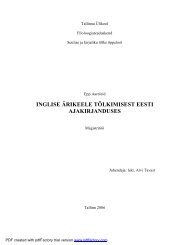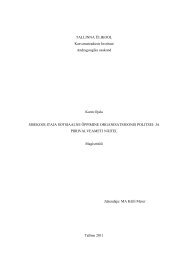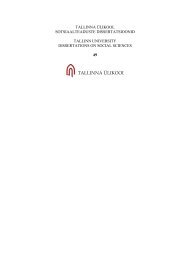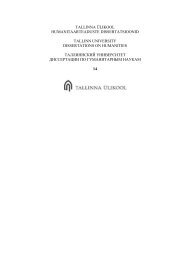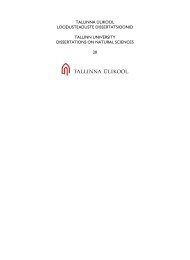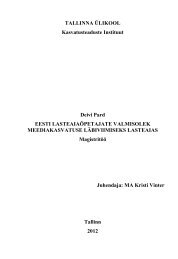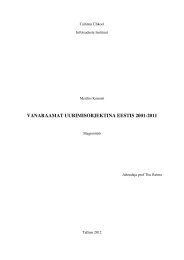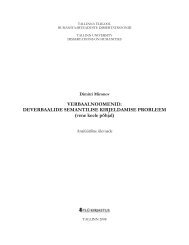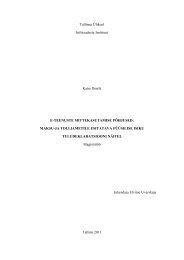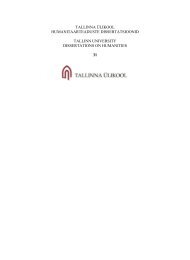Download (1157Kb) - E-Ait
Download (1157Kb) - E-Ait
Download (1157Kb) - E-Ait
You also want an ePaper? Increase the reach of your titles
YUMPU automatically turns print PDFs into web optimized ePapers that Google loves.
While informal techniques of knowledge sharing faciliate participation, it should be noted<br />
that unlike formal knowledge sharing, the presentation of informal knowledge sharing is not<br />
based in any kind of a schema. This kind of presentation poses a serious challenge in<br />
managing the resulting knowledge in a logical way which may enable future reuse. This does<br />
suggest that any semantic search for informal knowledge is not possible and urges the need to<br />
combine both informal and formal approaches to allow capturing and the future reuse of the<br />
captured knowledge. The valuable informal knowledge may be captured in a formal structure<br />
to allow its wider use. This will only be possible if knowledge holders are willing to facilitate<br />
its codification in a kind of structure. In a library for instance, a member may have captured<br />
some kind of knowledge from wikis and document it for others to use. Many computer<br />
application problems are well solved in forums, and if libraries motivate people to import<br />
these kinds of knowledge to their knowledge base, then more value will be added to library<br />
routines.<br />
Another drawback of informal processes is the fact that they are not owned by the<br />
organisation, informal knowledge processes are owned by the knowledge workers who create<br />
and use them. This suggests that if there is no mechanism to encourage owners to share and<br />
to allow capture of the resulting knowledge then chances are high that they may soon be<br />
forgotten, even by their creators. As a consequence more time is spent in a continuous<br />
reinvention of the same knowledge which would not be the case if it was captured in some<br />
way. This is a challenge for organisations to embark on understanding how knowledge<br />
workers can be encouraged to share knowledge. It will need a lot of research and resources<br />
but the outcome may result in increased productivity. Tanzania public university libraries<br />
alternatively may encourage more effective use of technological infrastructure and encourage<br />
the uses of online forums and wikis. The outcome of the findings suggested that online<br />
facilities are barely used for sharing. It may be due to the fact that many library staff are not<br />
aware of existence of such facilities or that their use is discouraged by the authorities because<br />
of the perception that library staff spends more time in these facilities for their personal<br />
benefits than attending to their duties.<br />
44




